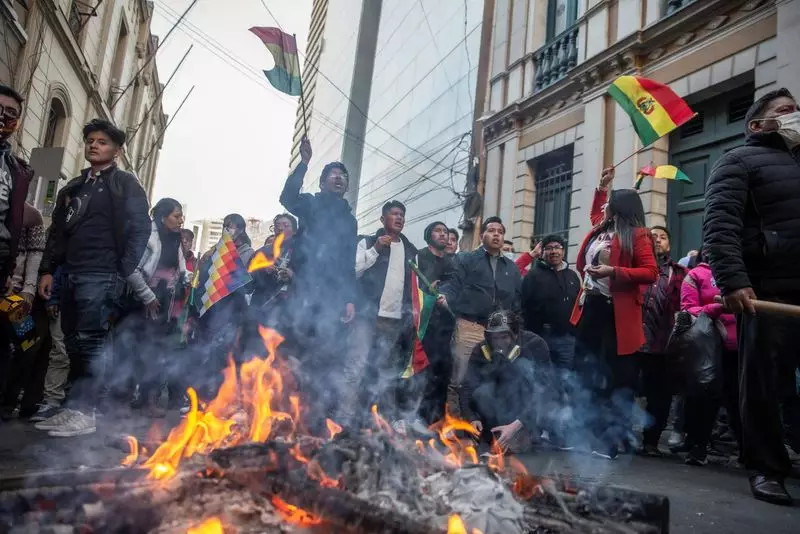The recent events in Bolivia have caused a stir in the political landscape of the country. The armed forces, led by General Juan Jose Zuniga, made a bold move by gathering in the central Plaza Murillo square, which is home to the presidential palace and Congress. This action was deemed by President Luis Arce as an attempted coup d’état against his government, leading to his call for international support. The image of an armored vehicle ramming the door of the presidential palace, followed by soldiers rushing in, painted a picture of chaos and uncertainty in the nation.
President Arce was quick to denounce the coup attempt and urged the Bolivian people to mobilize in defense of democracy. As tensions escalated, the military units eventually withdrew from the square, with the police taking control of the plaza. General Zuniga was arrested and removed from his post, highlighting the internal strife within the military establishment. The situation took a turn as Arce appointed José Wilson Sanchez as the new military commander, in a bid to restore order and calm in the country.
The international community, including the United States, closely monitored the situation in Bolivia and called for calm and restraint. The upcoming general elections in 2025 have added to the political turmoil in the country, with former President Evo Morales planning to run against President Arce. The rift within the ruling socialist party has created a sense of uncertainty and instability, leaving many wary of a return to Morales’s governance.
Bolivia’s economic challenges, including an economic slump, depleted central bank reserves, and pressure on the boliviano currency, have exacerbated the political crisis. General Zuniga’s call for a new cabinet of ministers and his appeal to the public reflected the growing discontent in the country. The implications of these events have far-reaching consequences for Bolivia’s stability and democratic institutions.
President Arce and Bolivia’s democracy received widespread support from regional leaders and beyond, with Mexican President Andres Manuel Lopez Obrador expressing strong condemnation of the attempted coup. Even political opponents of the government, such as ex-President Jeanine Anez, condemned the military action and emphasized the importance of upholding the constitutional order through democratic means.
The failed coup attempt in Bolivia has underscored the fragility of democracy and the challenges facing the country. The events of recent days have revealed deep-seated divisions within the military and political establishment, raising concerns about the future of Bolivia’s governance. As the nation grapples with economic hardships and political turmoil, the need for unity, dialogue, and adherence to democratic principles is more crucial than ever.

